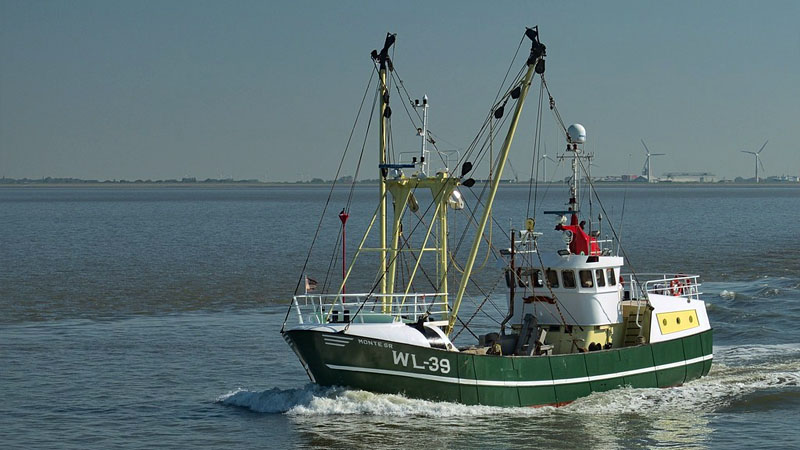Exclusive content

In the Netherlands, Wageningen University & Research (WUR) is set to embark on a research project aimed at exploring the viability of sustainable shrimp fishing in the Wadden Sea. The initiative, supported by the Wadden Fund with a financial injection of EUR 559,000 and an additional EUR 140,000 from the Ministry of Agriculture, Nature Management, and Fisheries, seeks to investigate alternative fishing methods to the prevalent beam trawling nets currently in use.
The focus of the research is twofold: first, to identify alternative fishing methods that are more sustainable than conventional beam trawling, and second, to assess the commercial feasibility of these methods for shrimp fishermen. The researchers at Wageningen Marine Research plan to conduct practical tests on the effectiveness of anchor pits and baskets as potential alternatives for shrimp fishing in the Wadden Sea.
Anchor pits involve nets anchored in the tidal current, relying on the natural movement of the current to capture shrimp. On the other hand, baskets use bait to attract shrimp into trap-shaped openings. These methods have been successfully employed in the Wadden Sea for other fish species, as well as for lobsters and crabs.
Eleven shrimp cutters from the Wadden region will actively participate in the research over the next year, putting anchor pits and baskets to the test. The study aims to determine the efficiency of these alternative methods in catching shrimp, monitor fuel consumption on shrimp cutters, and evaluate the extent of unwanted bycatch, including young fish and other marine life.
The research findings will be disseminated to shrimp fishermen through meetings and sounding board sessions. Additionally, the study will provide technical recommendations for implementing these alternative fishing methods, thereby supporting shrimp fishermen in making their practices more sustainable. This initiative aligns with the overarching goals of the Wadden Fund, contributing to sustainable economic development in the Wadden area, reducing reliance on fossil fuels, and enhancing the preservation of underwater nature in the region.